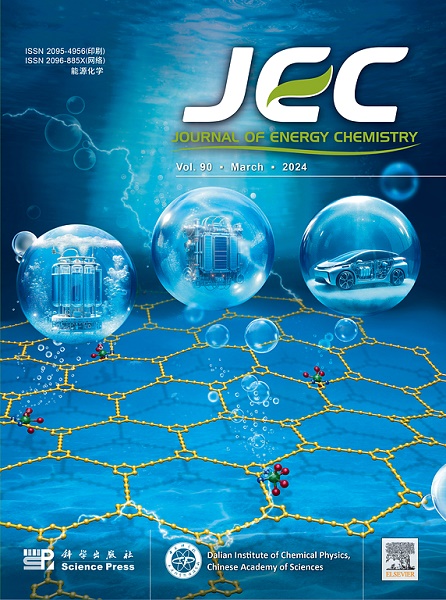Nanostructured fuel electrodes for low-temperature proton- and oxygen-ion-conducting solid oxide cells
IF 13.1
1区 化学
Q1 Energy
引用次数: 0
Abstract
Solid oxide cells (SOCs) are attractive electrochemical energy conversion/storage technologies for electricity/green hydrogen production because of the high efficiencies, all-solid structure, and superb reversibility. Nevertheless, the widespread applications of SOCs are remarkably restricted by the inferior stability and high material costs induced by the high operational temperatures (600–800 °C). Tremendous research efforts have been devoted to suppressing the operating temperatures of SOCs to decrease the overall costs and enhance the long-term durability. However, fuel electrodes as key components in SOCs suffer from insufficient (electro)catalytic activity and inferior impurity tolerance/redox resistance at reduced temperatures. Nanostructures and relevant nanomaterials exhibit great potential to boost the performance of fuel electrodes for low-temperature (LT)-SOCs due to the unique surface/interface properties, enlarged active sites, and strong interaction. Herein, an in-time review about advances in the design and fabrication of nanostructured fuel electrodes for LT-SOCs is presented by emphasizing the crucial role of nanostructure construction in boosting the performance of fuel electrodes and the relevant/distinct material design strategies. The main achievements, remaining challenges, and research trends about the development of nanostructured fuel electrodes in LT-SOCs are also presented, aiming to offer important insights for the future development of energy storage/conversion technologies.

低温质子和氧离子导电固体氧化物电池的纳米结构燃料电极
固体氧化物电池(soc)因其高效、全固体结构和优异的可逆性而成为极具吸引力的电能/绿色制氢电化学能量转换/存储技术。然而,soc的广泛应用受到高工作温度(600-800°C)引起的低稳定性和高材料成本的显著限制。为了降低soc的总体成本和提高其长期耐用性,研究人员一直在努力降低soc的工作温度。然而,燃料电极作为soc的关键部件,在低温下存在催化活性不足和杂质耐受性差/抗氧化还原性差的问题。纳米结构和相关纳米材料由于其独特的表面/界面特性、扩大的活性位点和强相互作用,在提高低温(LT)- soc燃料电极性能方面表现出巨大的潜力。本文简要介绍了用于lt - soc的纳米结构燃料电极的设计和制造的最新进展,强调了纳米结构在提高燃料电极性能方面的关键作用以及相关的/独特的材料设计策略。介绍了纳米结构燃料电极在lt - soc中的主要成就、存在的挑战和研究趋势,旨在为未来储能/转换技术的发展提供重要见解。
本文章由计算机程序翻译,如有差异,请以英文原文为准。
求助全文
约1分钟内获得全文
求助全文
来源期刊

Journal of Energy Chemistry
CHEMISTRY, APPLIED-CHEMISTRY, PHYSICAL
CiteScore
19.10
自引率
8.40%
发文量
3631
审稿时长
15 days
期刊介绍:
The Journal of Energy Chemistry, the official publication of Science Press and the Dalian Institute of Chemical Physics, Chinese Academy of Sciences, serves as a platform for reporting creative research and innovative applications in energy chemistry. It mainly reports on creative researches and innovative applications of chemical conversions of fossil energy, carbon dioxide, electrochemical energy and hydrogen energy, as well as the conversions of biomass and solar energy related with chemical issues to promote academic exchanges in the field of energy chemistry and to accelerate the exploration, research and development of energy science and technologies.
This journal focuses on original research papers covering various topics within energy chemistry worldwide, including:
Optimized utilization of fossil energy
Hydrogen energy
Conversion and storage of electrochemical energy
Capture, storage, and chemical conversion of carbon dioxide
Materials and nanotechnologies for energy conversion and storage
Chemistry in biomass conversion
Chemistry in the utilization of solar energy
 求助内容:
求助内容: 应助结果提醒方式:
应助结果提醒方式:


